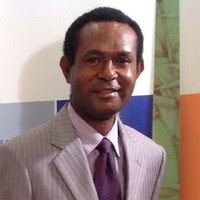Does PNG need a post-Bougainville Constitution?
 |
| Photo credit: Martyn Namorong |
Will PNG break up in the event that Bougainville is granted full independence? For some PNG leaders the threat of balkanization has shaped their attitudes towards granting Bougainville independence. One such leader is Prime Minister James Marape who recently pleaded with Bougainville's leaders to take into consideration PNG’s fate when deliberating on the matter.
But asking Bougainville to empathize with PNG is a bit rich considering PNG has never really empathized with Bougainvilleans. PNG certainly didn't when they first demanded independence before PNG gained its independence and when they opposed the Panguna mine.
Instead of asking for Bougainvilleans to see things through a PNG lens, Prime Minister Marape should be preparing PNG to let go of Bougainville. Bougainvilleans have already made up their minds on full independence as expressed in the results of the referendum on whether or not they remain an integral part of PNG. PNG on the other hands needs a serious national consultation on it’s post Bougainville political architecture instead of toying around with whether or not it should be defined in it’s Constitution as a Christian nation.
At independence there was a recognition by the likes of PNG’s first Governor General Sir John Guise that the kind of centralized Westminster government PNG was borrowing from its colonial master would lead to separatist movements. The context of Sir John’s concern was that prior to independence there were already movements of political self-determination across the land.
The aspiration for self-determination is is as old as the independent Melanesian tribes that have for millennia defended their tribal lands from outsiders. It was against this cultural grain that a forced unification was imposed by the west. This has been perpetuated since 1975 by an elite whose minds have been successfully colonized. Colonization in PNG has a black face.
But a tendency for self-determination need not necessarily mean balkanization is inevitable. After all, Bougainville was initially amenable to being part of PNG at independence in 1975 and dropped its ambitions for independence. The Bougainvilleans would however be disappointed by a neocolonial government in Waigani and its instruments of suppression inherited from the colonial administration. Attempts to accommodate Bougainvillean aspirations within the nation-state model borrowed from the west led to a civil war and remains a source of discontent nationwide with calls for autonomy.
The English language is not the native tongue of Papua New Guineans. Translating their self-determination aspirations inevitably involves losing some of the nuances of the political, social and economic autonomy control they wish to have. We have seen this from the Bougainville experience where the west-minster model of the nation state has proven itself to be incapable of accommodating the political aspirations of the people of Bougainville. Even after Bougainvilleans were granted greater autonomy than most other autonomous regions globally, they chose independence. This reflected their bitter experience where Waigani continued to deny them much needed development funding and stifle their progress.
The Melanesian world has for millennia been a multi-polar world with no strong political center or hegemony. The colonial powers imposed their nation-building historical tradition through a newly educated elite of PNG. They hoped the elite would administer a regime that would create a western-styled homogenous national identity under central control. Such an animal is not necessarily evil however the PNG experience has shown that it is flawed as it can easily be hijacked by a rent-seeking predatory elite.
Thus the accumulation of power and resources at the center of power has had little trickle-down effect on the periphery. In natural resource law, many Papua New Guineans feel cheated by a system that enables itself to own and decide on the exploitation of oil, gas and minerals under tribal lands. Year after year subnational administrations wait like beggars for Waigani to release warrants for their development activities. Political leaders proud of their people’s mandate have become yoyos jumping into different political camps hoping to grab some crumbs for their people. People who were once warriors have become worriers and by-standers in their own land.
Bougainvilleans clearly do not want to be part of this failed project and are intent on bailing out. Through their natural resource law they have demonstrated that the people should always be the center of power and not the central government. Waigani needs to catch up to this reality instead of looking for band-aid solutions towards maintaining central control through the nation state.
A second Constitutional Planning Committee is needed to seek out opinions of the people of PNG as to the type of system of government that is more relevant to them. PNG needs a new Constitution and a new political architecture to accommodate the different interest groups in this land post Bougainville’s inevitable exit. The current centralized system has been rightfully acknowledged by many leaders including the Prime Minister to be unable to withstand pressures from separatists especially when institutions of the state are weak.
PNG is a plurinational state that has been pretending to be a nation state for over 40 years. Instead of obsessing over whether PNG’s constitution defines it as a Christian country we should be exploring models of government that may be more relevant to PNG.
Should PNG be redefined from being the Independent State of Papua New Guinea to becoming the Plurinational State of Papua New Guinea? PNG needs a new Constitution that recognizes the different tribal nations and empowers them with their full rights to self-determination within a political union.
Labels: Autonomy, Bougainville, Constitution, Independence, Plurinational state, PNG, Politics

